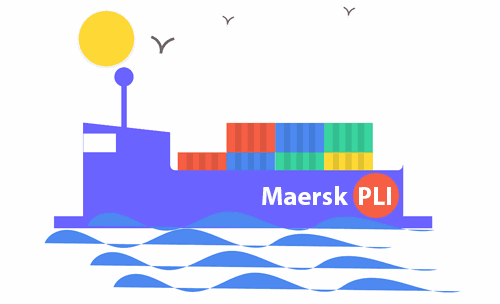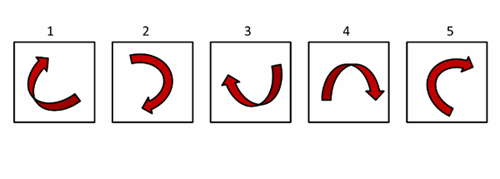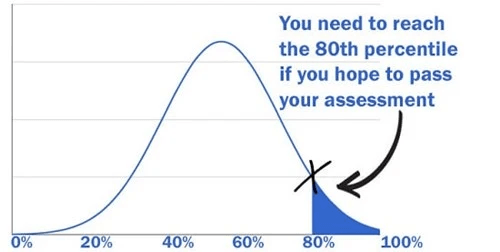 Maersk PI Cognitive Assessment (PLI) Test Practice
Maersk PI Cognitive Assessment (PLI) Test Practice
Simulate your approaching Maersk assessment with Free Maersk PLI Sample Test - Complete with Solutions, Insider Tips & Score Report

10s of practice tests & 1000+ practice questions for Maersk assessment
- 2 Diagnostic tests (assesses your skill level & weak-point)
- 6 Maersk PI test simulations
- 19 Figural reasoning tests
- 18 Numerical practice tests
- 11 Verbal practice tests
- 1 Personality test simulation
- 8 Numerical exercises
- 11 Study guides & video tutorials
- PI Behavioral Assessment Practice & Guides
What to Expect from Your Maersk Predictive Index Test
Below we will explain in-depth, the various segments of the cognitive ability and what you need to know to prepare. For an in-depth look at the PLI test watch the following video:
Maersk PLI Exam Format & Rules
🕑 | The test is 12 minutes in length and will include a running clock on the right side of the screen |
❔ | 50 Questions (5 questions per page) |
| 📋 | Multiple-choice: Format, which means that you will choose a correct answer from among a preset list of 4-5 possible answers |
🖩 | Test Aids: Test aids such as calculators are not allowed for use during the test |
📊 | Test Score: After completing your test, the score will be immediately and automatically available |
Maersk PLI Sample Questions
The PLI Maersk aptitude test is comprised of 3 topics:
Let's try some practice questions for each section:
Math Sample Questions:
Question 1:
Tom completes a given task in 20 days whilst Joan requires only 12 days in order to complete the same task. Tom and Joan set out to complete one task together. They started to work at the same time; however, due to personal reasons, Joan had to take a leave of absence of 4 days during their mutual work.
If Tom continued working on his own during Joan's leave, how many days did it take them to complete the task?
Question 2:
A normal visit to a specialist physician costs $68. Private health insurance that covers specialist treatment costs $350 per annum.
How many visits to a specialist physician will justify buying private health insurance?
Maersk PLI Verbal Sample Questions
Question 1:
By ____ the fossil remains of animals, paleontologists can learn much about their ____ .
Question 2:
Cloth ____ , to be held in place by safety pins, were first mass ____ in 1887.
Maersk PLI Non-Verbal Reasoning Sample Questions
Question 1:
Choose the odd one out:

Question 2:
Choose the odd one out:

3 Essential Maersk PLI Test Tips
1) Answer What You Know and guess what you don't:
With only 12 minutes to finish the test you have to practise working under pressure. Though don't be too hard on yourself if you don't manage to complete all questions in time. Only 1% of test takers answer over 40 questions let alone all 50.
Just make sure that you go over all the questions and answer as many of them as you can. The questions you know the answer to shouldn't be lost. Those you don't know just guess and move on.
2) Try to get previous experience of the test questions and environment:
Before taking the test practise our free test (or our full offering) so you can gain better knowledge of where your weaknesses and strengths are.
Knowing this will allow you to strengthen your weak points just enough to secure the score you need to get the job.
3) Make sure to do the test in your mother tongue:
The test Maersk aptitude test can be taken in over 70 languages. Those who choose to take the test in a second language usually do worse by 6-8 questions.
This can drastically affect your final score and cost you a critical position compared to your competitors.
If your mother tongue is not one of the languages available - go with the language you are most comfortable with.
For lots more in-depth tips go see our main PLI Test practice page - it's definitely worth your time.
Maersk Aptitude Test Scoring Explained
Raw – Ranging from 17-23, this simply tallies all your right answers together. Thus, it can be assumed that the average Maersk Assessment score is 20.
Percentile – The percentile score indicates how you fared against all test takers combined.
For instance, if you are in the 70th percentile that means you did better than 70% of all test takers.
Sub-Score - The sub-score is also broken down according to sub-categories: numerical; verbal and; non-verbal.

About the Maersk Group Application Process
The Interview process includes 6 primary stages, let’s take a brief look, so you can have an idea what to expect.
Note: The company may change parts of the process according to the seniority of the position you apply for.
Stage 1: Online application process
Stage 2: Assessment tests like PI and behavioral
Stage 3: Email video questions
Stage 4: Interview with a hiring manager and an HR rep. (In-person)
Stage 5: Maersk Assessment Day along with panel interviews
Stage 6: Contract signing and on-boarding
FAQs
As a precursor to our PI Assessment Test overview, it is important to understand the overall purpose of the exam.
This precursor should help give the reader gain some background and context before launching into its fine detail.
The test is designed to give your future employer a way to broadly evaluate your cognitive capacity.
By looking at such metrics like speed, visualization, memory, and attention to details, the hirer, will better assess how you will adapt and handle challenges and tasks within the organization.
Generally speaking, either the hiring manager or HR will be in charge of proctoring the test. PI trains companies to take on this role.
No the test is “culturally neutral” meaning you do not need any special knowledge of a specific culture or society to answer the questions.
No, the test builders have taken this into account by programming the test to download all questions before you begin the test. However, it is highly advised not to use a cell phone or IPad due to the processing power of the machines.


